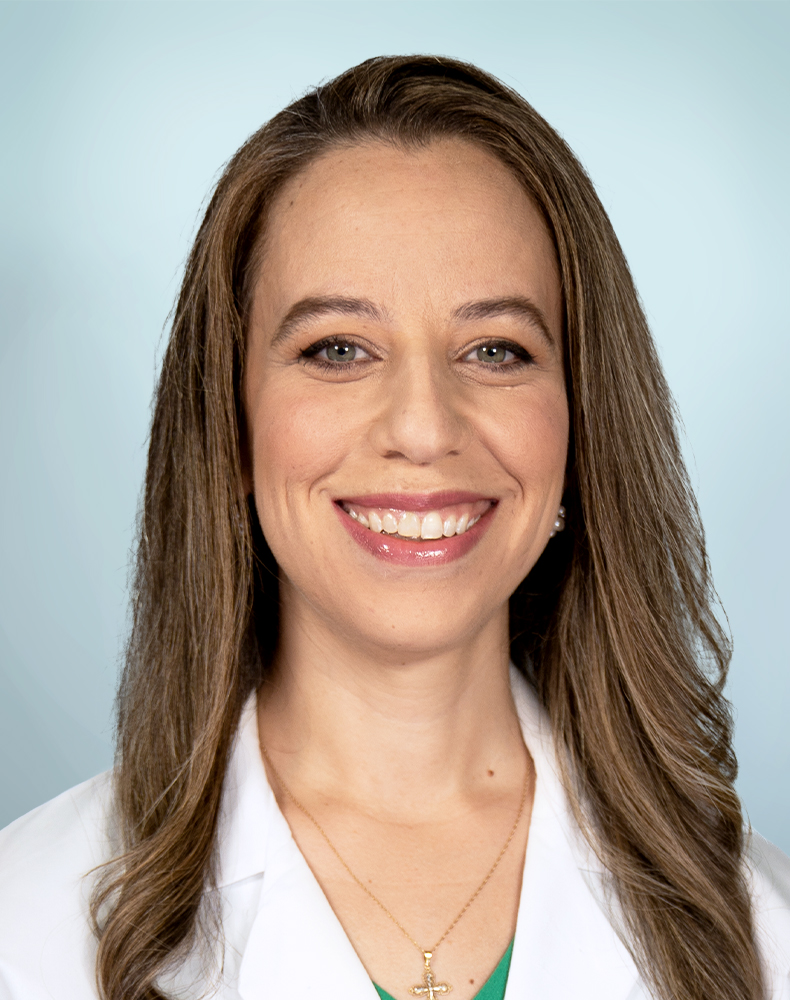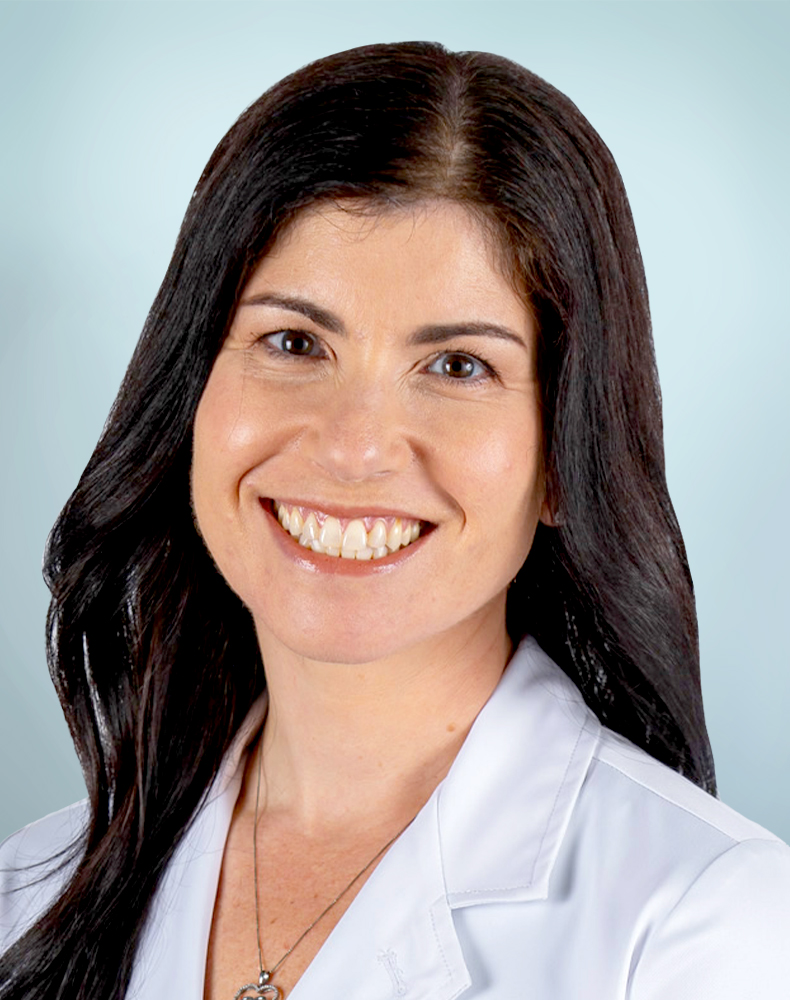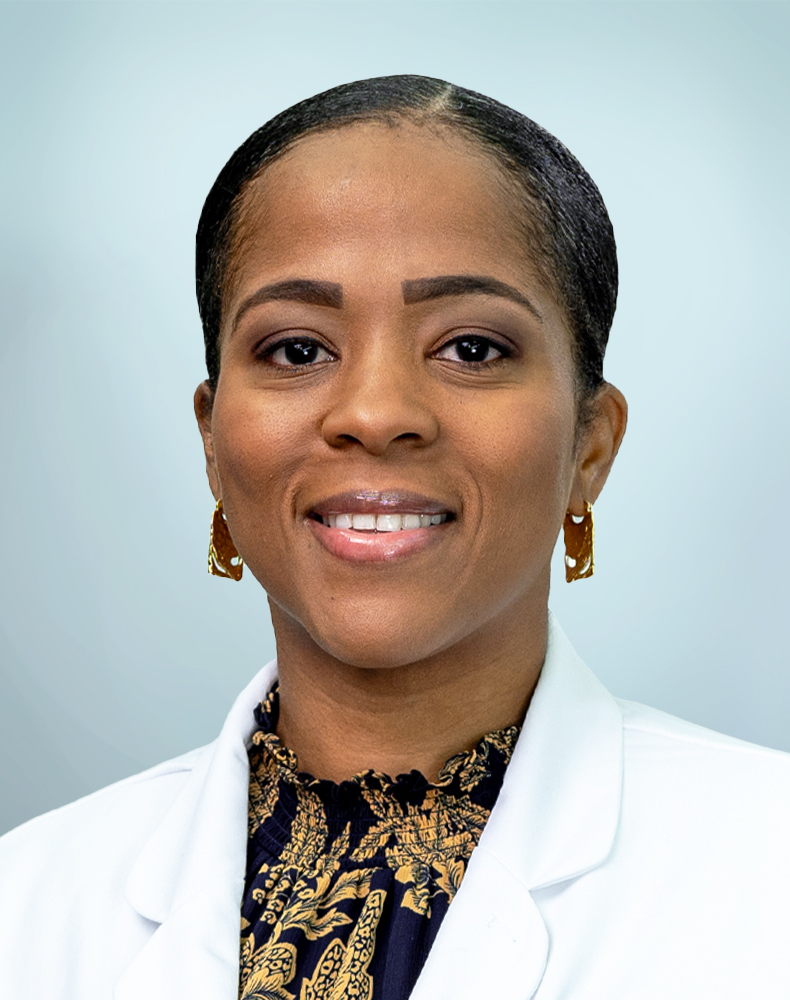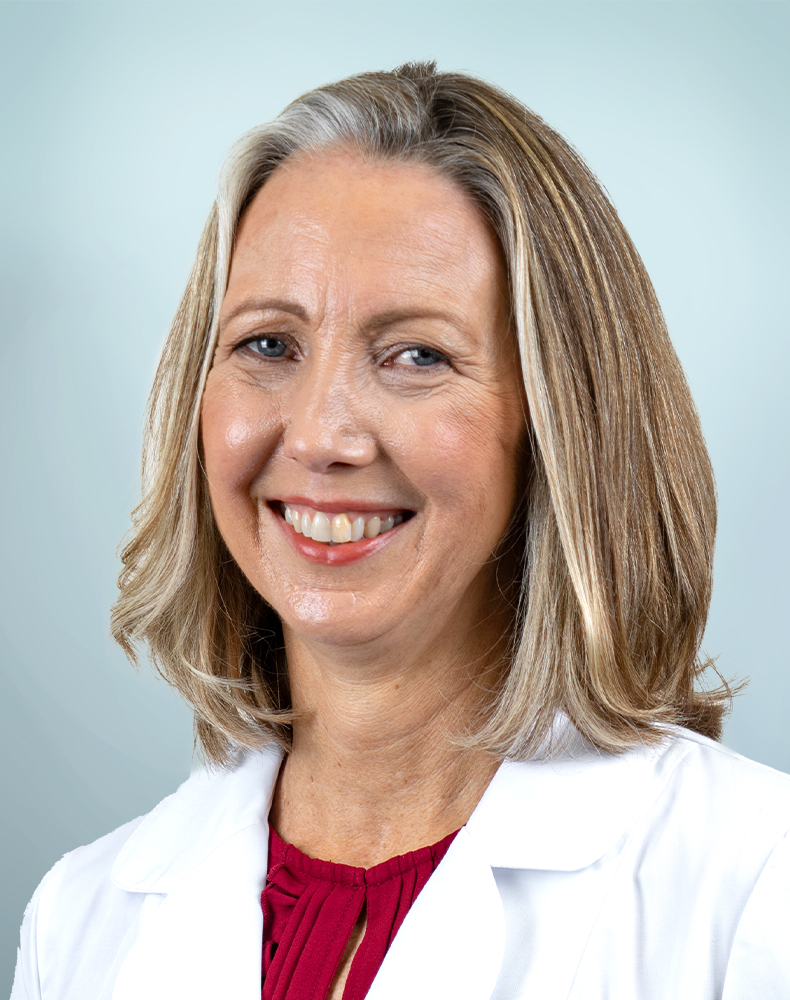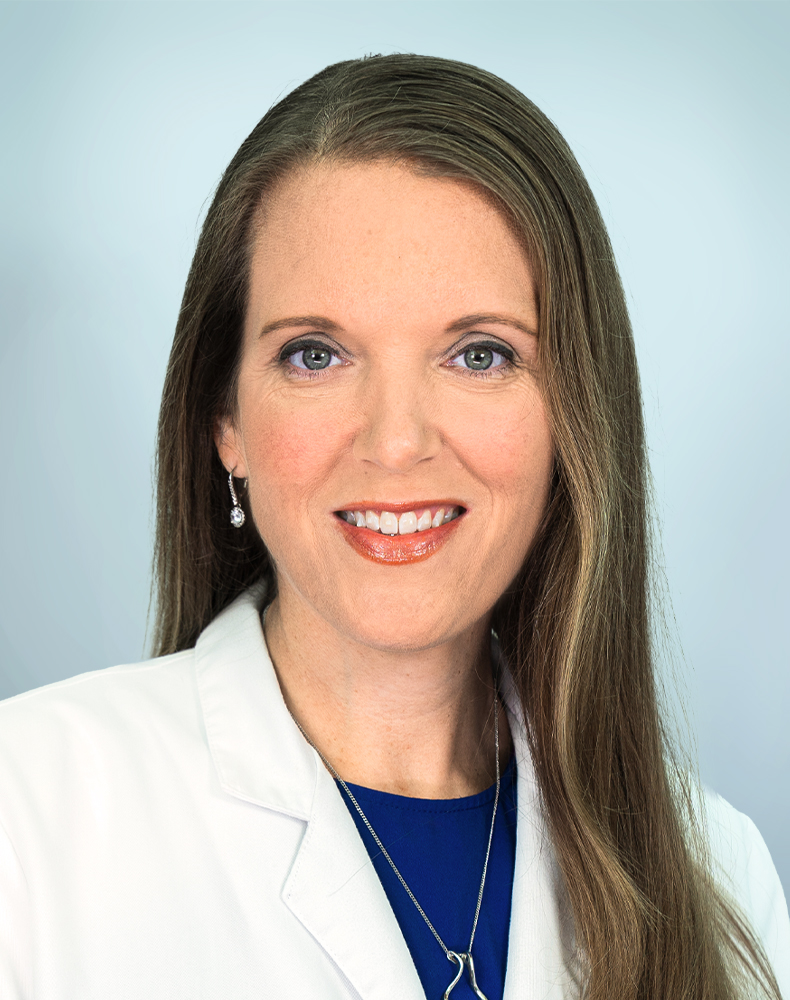
Young Women’s Health Program
We provide specialized care for females ages 10 to 21. Our services include reproductive health, gynecology, and breast and gynecological surgery.
We focus on the unique needs of adolescents and young women, generally between the ages of 10 and 21. Our services include reproductive health, gynecology, breast surgery and gynecological surgery.
Expert, Youth-Friendly Care
Adolescence is when young people begin to find their identity and place in the world. It’s a time of excitement, anticipation and challenges. When health concerns come up, you may not know where to turn or even how to talk about them.
Our Young Women’s Health Program offers exceptional medical care with an emphasis on health and well-being. We work closely with patients and their families, providing education, guidance and reassurance at every step. Our goal is to help each patient be their best.
Young Women’s Health and Gynecology Services
Joe DiMaggio Children’s Hospital is home to one of only a few adolescent medicine doctors in Miami and South Florida. These specialists have extensive training in the physical and emotional development of teens, with proven strategies to care for this age group.
Our providers evaluate and treat problems related to menstruation, puberty and reproductive health. They also provide care for conditions such as pelvic pain and ovarian cysts.
Services we provide include:
We can help with the wide range of menstrual irregularities that can occur in young women, including:
- Bleeding or spotting between periods
- Frequent periods less than 21 days apart
- Heavy periods with excessive bleeding
- Irregular periods with extreme cycle-to-cycle variation
- No periods or infrequent periods more than 35 days apart
- Painful periods causing severe menstrual cramps
- Prolonged periods lasting more than 8 days
Severe medical conditions, such as cerebral palsy, can make managing menstruation challenging. In these situations, we can offer young women treatment to manage or stop their periods.
PCOS is a common, yet complex, condition that is caused by a hormone imbalance. Diagnosis requires two of the following criteria:
- Irregular release of eggs from the ovaries (ovulation)
- Too much androgen, a male hormone that females typically make in small amounts
PCOS symptoms vary widely, but may include:
- Irregular, missed or no periods
- Excess hair growth, especially on the face, chest and back
- Thinning hair on the head
- Severe acne or oily skin
- Trouble getting pregnant (infertility)
- Weight gain
Managing PCOS often takes a team of providers. Our team includes adolescent medicine specialists, endocrinologists (doctors who treat hormone-related conditions) and registered dietitians. We work together to ease symptoms and prevent future health problems that can occur with PCOS.
Puberty in girls typically occurs between ages 8 and 13. The most common signs of delayed puberty are:
- Lack of breast development by age 13
- Lack of menstruation by age 16 or within four years of breast development
Our approach focuses on determining the extent of the delay, the underlying cause and a plan for care. Often, delayed puberty runs in families, and patients may catch up without treatment.
We offer confidential pregnancy testing and all types of birth control, including:
- Birth control patch
- Birth control pill
- Birth control shot (Depo-Provera)
- Intrauterine device (IUD)
- Hormonal implant (Nexplanon)
- Vaginal ring
Our providers help patients understand the pros and cons of each birth control option so they can choose the type that best suits their needs.
STIs spread from person to person through vaginal, oral and anal sex. Many people with STIs have no symptoms. When symptoms do occur, they can range from mild to severe and include:
- Abnormal vaginal discharge that may have a fishy odor
- Burning when urinating
- Itching, pain or burning in or around the vagina
- Pain or bleeding during or after sex
- Sores, blisters or growths around the genitals, rectum, lips or mouth
If not treated, STIs can cause infertility, long-term pelvic pain and other complications. For those experiencing STI symptoms, we provide testing and treatment.
We also offer STI testing if someone has no symptoms. Experts recommend annual STI testing for sexually active young women under age 25. Doctors may recommend other tests for those with an increased risk of STIs due to:
- Recent sexual contact with someone with a known STI
- Multiple sex partners
- Drug misuse
- History of paid sex work
- Past STIs
- Previous incarceration
What to Expect at the First Visit
We schedule all new patient appointments for one hour so we can get to know our patients and understand the reason for their visit. We aim to provide a safe, nonjudgmental environment so patients feel comfortable talking to us.
Part of the first visit is an assessment to identify possible risk factors. For patient privacy, we do this evaluation one-on-one. Occasionally, however, we may have medical students or residents in attendance for training purposes, with the family's permission. We provide confidential care.
FAQs
We're always here to answer any questions you may have before, during or after your visit.
Common Questions About Your Visit
Many patients come for their visit thinking it will involve a gynecological exam. Whether a patient needs an exam depends on the issue. In some cases, we can diagnose and treat problems based on symptoms alone. For STI testing, it may be possible for patients to do a self-swab in the bathroom or a urine test.
If an exam is necessary, patients can choose to have a parent or medical assistant in the room. Our providers are caring and make exams as easy as possible. They describe what to expect, explain what’s happening and why, and check in often.
Patients 18 or older don’t need parental permission to see us. Those younger than 18 can access pregnancy testing, STI testing, and birth control services without parental permission. Other services require a parent to be present.
Please note that insurance companies may require a referral from a primary care provider for reproductive health services. And if we bill insurance, the policyholder will receive a statement that includes general information about the visit.
All healthcare services are confidential as outlined in our HIPAA Privacy Notice. State and federal laws limit confidentiality in certain situations, including:
- Communicable disease diagnosis
- Risk of a patient harming themself or others
- Suspicion or evidence of abuse
After the visit, tests may be needed or there may be a prescription to pick up at the pharmacy. We'll likely schedule a follow-up visit to see us again.
If we make a referral to another provider, we'll connect with that provider during the visit to request an appointment. Often, patients leave with an appointment already scheduled.
Transitioning to an Adult Provider
As adolescent medicine providers, we care for patients up to age 21. When patients reach that age, our team helps find an adult provider within Memorial Healthcare System or elsewhere. We make sure the transition is smooth, so patients can continue to get the care they need.
Adolescent Breast and Gynecological Surgery Services
Joe DiMaggio Children’s Hospital pediatric surgery team offers a variety of surgical procedures for routine and complex breast and gynecological conditions. When needed, we partner with other doctors, including our adolescent medicine specialists, to ensure we provide a comprehensive treatment approach.
Our surgeons center care around you and your child, providing guidance before, during and after the procedure. With a deep commitment to compassion, respect and trust, we take time to explain all treatment options. We listen to each patient’s needs and concerns and work together to develop a personalized treatment plan. Whenever possible, that plan includes minimally invasive surgery through tiny incisions to speed healing.
Learn more about what to expect with pediatric adolescent and breast surgery.
Conditions we treat include:
Most breast masses in pediatric patients are noncancerous (benign), but they can cause stress and embarrassment. Treatment depends on the type of mass, its size and whether it’s causing symptoms. Surgical removal may be the right approach for masses that are large and symptomatic.
Other breast conditions we treat surgically include breast asymmetry, large breasts and anomalies present at birth or caused by other conditions.
Different types of masses can form in the ovaries, vulva and pelvic area. Most are noncancerous. We may recommend surgical removal for masses that are large or causing symptoms.
Ovarian torsion occurs when an ovary twists, constricting the tissues that support it. The rotation can cut off blood supply and damage the ovary.
The most common symptoms are pain in the lower abdomen, nausea and vomiting. Treatment involves surgery to untwist the ovary or remove it if it’s damaged.
Reproductive anomalies can affect the vagina, hymen, cervix and uterus. They're present at birth but may not show up or need treatment until adolescence. Surgery is a common treatment.
Why Choose Us for Young Women’s Health?
- Multispecialty expertise: Our skilled adolescent medicine specialists and pediatric surgeons work with endocrinologists, psychologists, registered dietitians and other specialists to provide seamless care.
- Welcoming team: Our compassionate professionals are sensitive to patient privacy and individuality and go out of their way to create a comfortable environment.
- Culturally sensitive care: We take time to learn each patient’s culture and provide care that is considerate of their beliefs and customs.
- Whole-person approach: Our services go beyond addressing patients’ medical needs and include consideration for their social and emotional health.
- Convenient access: We offer year-round, flexible scheduling and telehealth options to make it easy to connect with our providers.


